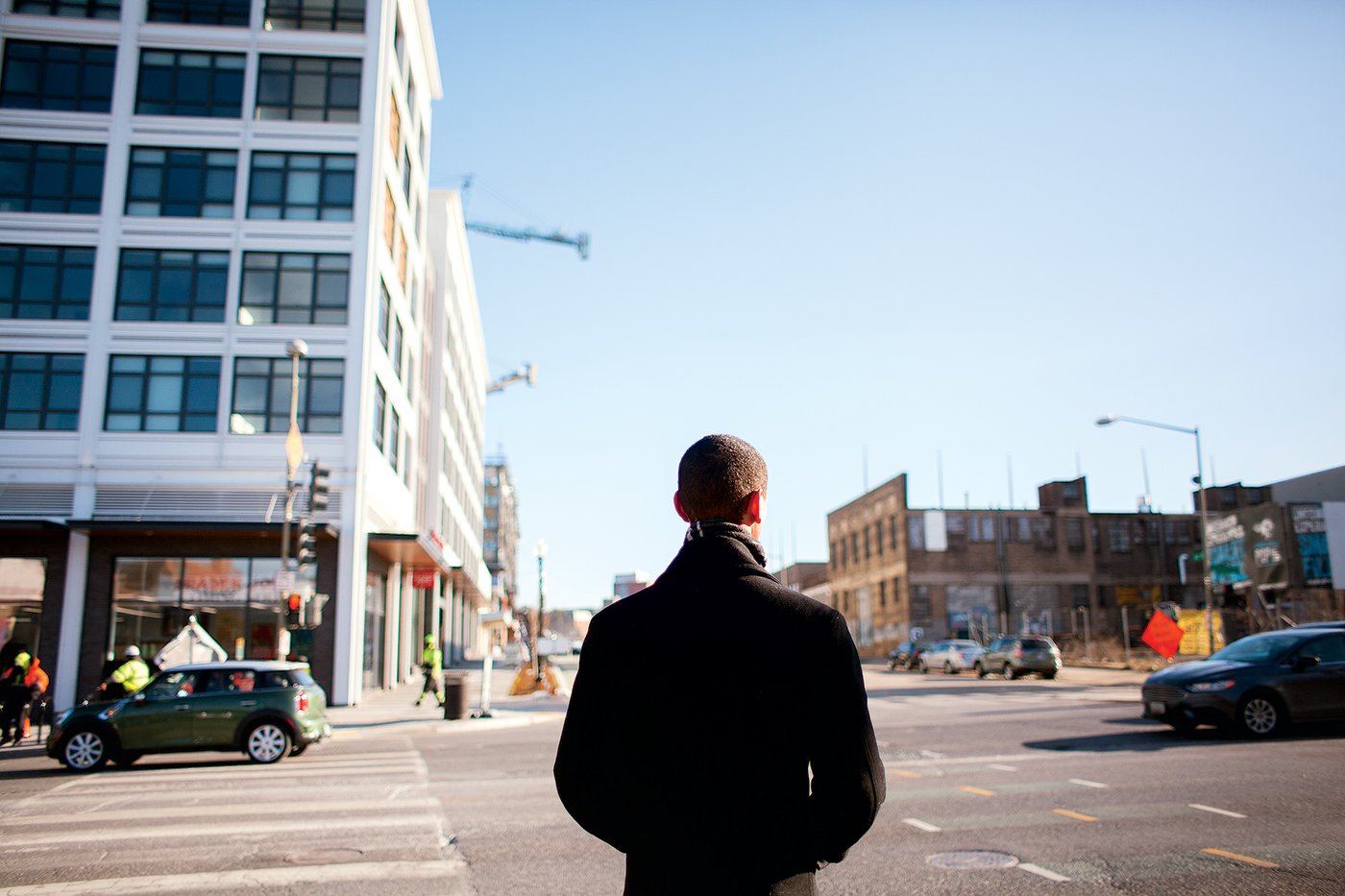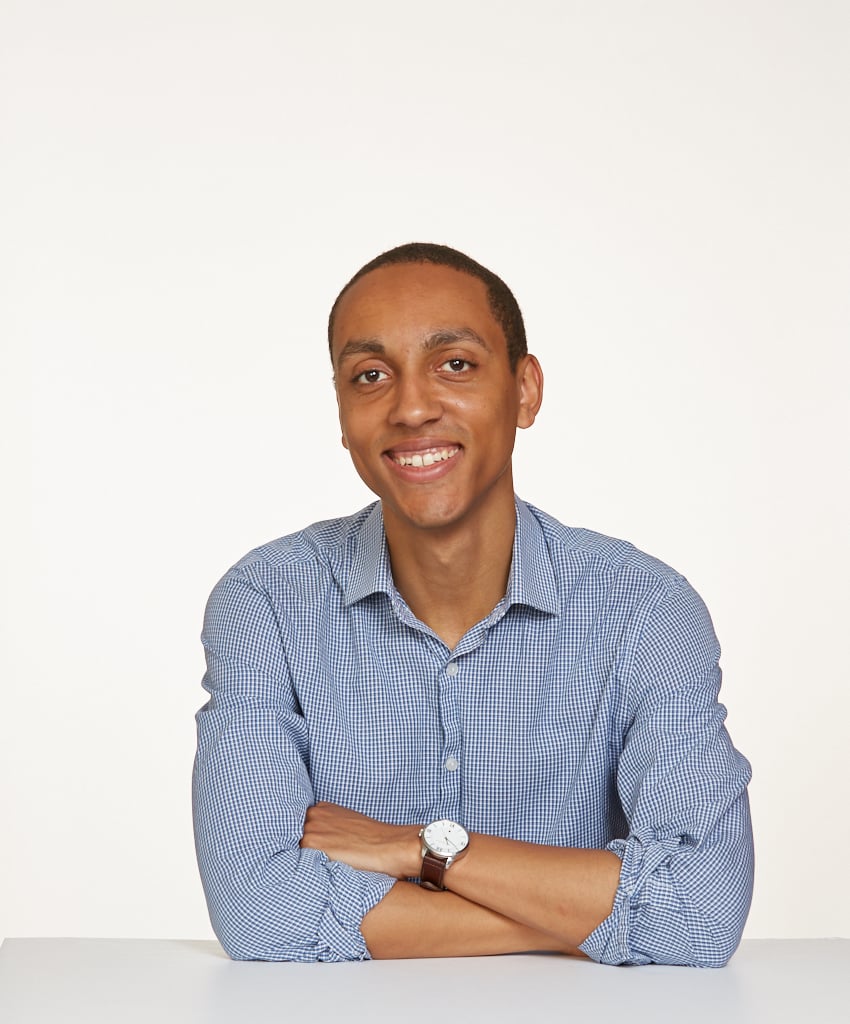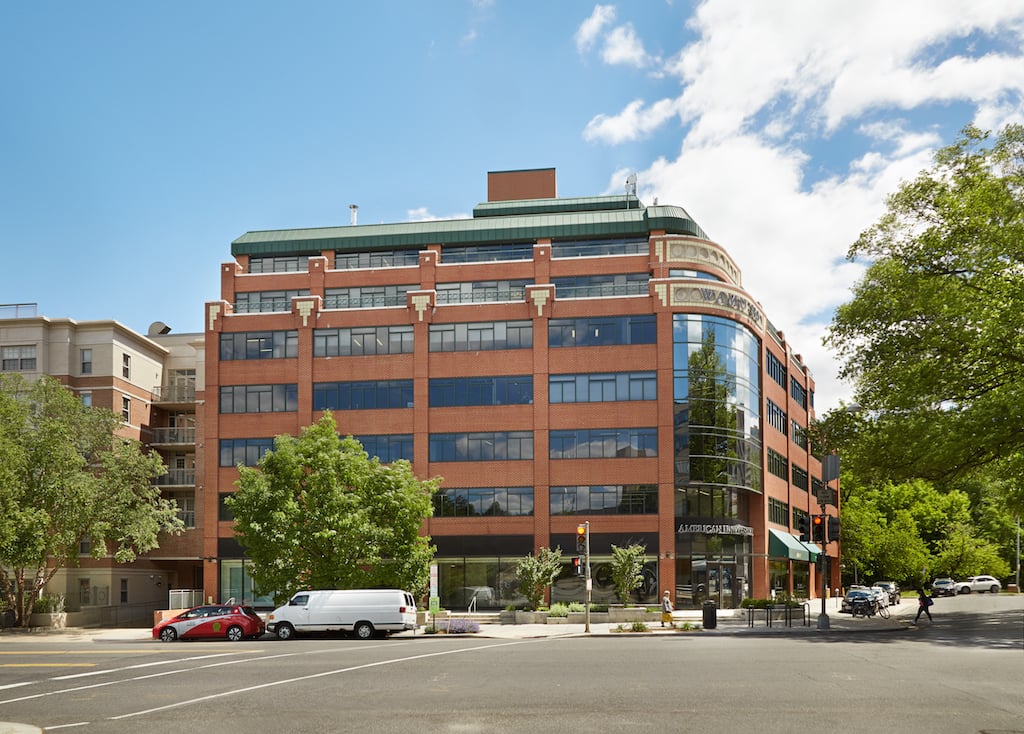I’m technically all settled into my bedroom on the top floor of a five-person house in Eckington, but I don’t feel settled. Sure, a family of rats lives in the trash cans out back, but something else is keeping me up. Perhaps it started when I opened my phone’s wi-fi options and more than 30 networks appeared—among them, “Gentrification_2.4” and “Gentrification_5G.” Or maybe it’s simply because I’m not sure I can connect to that word: gentrification.
I’ve heard it everywhere since returning to DC in January. Originally from the Philly suburbs, I came here for a summer internship in 2015 but wasn’t totally tuned into my surroundings the way I am now, as a 24-year-old editorial fellow at a magazine, on the hunt for story ideas, a social life, and the closest supermarket. I find myself blending in with the rest of the millennial horde often blamed for changing this city.
Although I don’t make great money, I fit the “young professional” description in the apartment listings I saw on Facebook and Craigslist, so I checked out a range of rentals in Columbia Heights, Shaw, and Eckington. Once I found a place, I looked up the census data for my new neighborhood: From 2000 to 2016, more than 16,000 white residents moved to the 20002 Zip code.
But I’m black. So why do I feel at fault for pushing locals out? “You people are the problem,” a Lyft driver said to me en route to a friend’s Columbia Heights apartment. “Well, not you specifically, but people like that woman right there.” He pointed. “She moved here from some suburb to live in this expensive condo with an eyewear shop and a gym. I just can’t afford that.”
My pride was hurt. I didn’t feel like I belonged to this obtrusive group—who walk their dogs with their heads down, AirPods shoved so tight that they can’t hear neighbors say hello. I’m struggling to afford my rent, I thought. How dare he?
Deep down, though, I knew what he meant. In 2016, more than 21,000 of Eckington’s residents were 20 to 34 years old—nearly double the number in 2000. The driver was just calling it how he saw it. Things are changing. And even though my skin color is the same as that of many who feel pushed from the neighborhoods they grew up in, I’m part of the reason for that feeling.
Yet no matter how many boxes I unpack or how many bus routes I discover, I still don’t feel settled. Whom does this city belong to? Where do I, the black gentrifier, belong?
I’ve started to feel a sense of home in some places. The barber in my neighborhood began imparting life lessons the moment I sat in his chair (he’d had 20 jobs and always sought new challenges: “Don’t ever stop growing”), but as soon as I told him where I lived, his smile narrowed. “All the homeowners on that block have moved away,” he said. When he mentioned gentrification, I felt my skin melt.
Perhaps by finding ways to give and not just take from this community in which I’m a stranger, I can become a community member. It goes beyond saying hello to neighbors. It might mean joining the church down the street, volunteering at a school, or participating in local politics. Something more than scoring a happy-hour deal.
But one Monday evening after work, all I wanted was my bed. It was raining and cold, and I’d missed the bus. I half-jogged to the Red Line. Once home, I climbed the stairs to my room. The wi-fi on my phone wouldn’t connect, so I searched for networks. There it was again: Gentrification_2.4. It popped up briefly, then disappeared.
This article appeared in the May 2018 issue of Washingtonian.



















